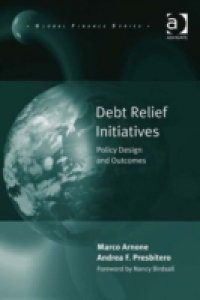This book deals with the recent debt crises in developing countries and analyzes the design and implementation of the Heavily Indebted Poor Countries (HIPC) Initiative, by providing background concepts, pointing out the main drawbacks and suggesting a different approach to debt sustainability and debt relief programs. The authors merge academic, operational and institutional expertise, in order to provide an evaluation as complete and balanced as possible on the much-debated effectiveness of debt relief in fostering economic growth, reducing poverty and reaching debt sustainability.Marco Arnone and Andrea F. Presbitero assess the joint evolution of external and domestic public debt and produce original empirical evidence on the potential effects of public debt on investment, economic growth and institution-building in low- and middle-income countries. The book also explores relevant and up-to-date policy issues, such as the loans-grants mix and the development of responsible lending strategies in foreign assistance, the surge of non-concessional and domestic borrowing by low-income countries, and the impact of the 2008-2009 global financial crisis on debt sustainability.

